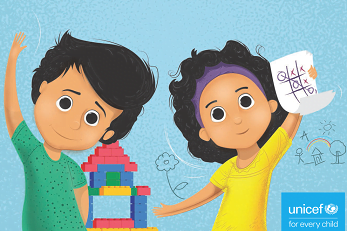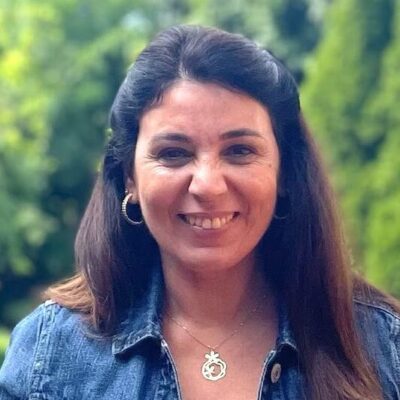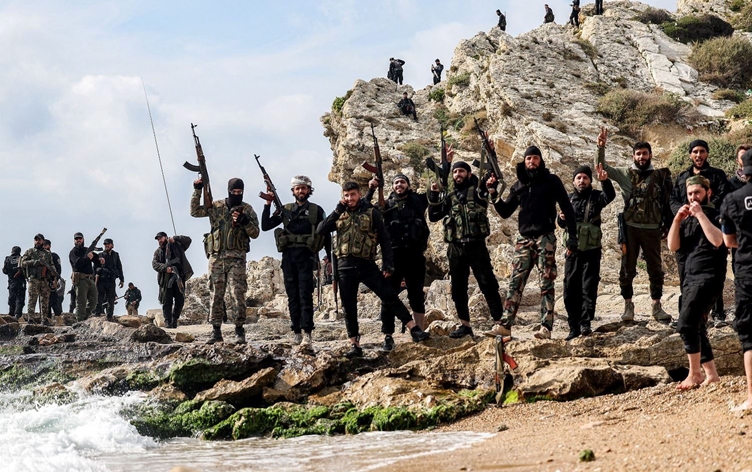
Scandals and assaults plague Lebanon’s orphanages. Any state reform that does not reconsider the nature of orphanages and does not work to prevent the separation of children from their families is doomed to fail. Experiences abroad have proven the failure of the so-called institutional care model. There is now a golden opportunity to reformulate the current vision of alternative care.
By Zeina Allouche (PhD)
News of sexual abuse and the ill-treatment of children in Beyt Al Yatim Al Durzi (The House of the Durzi Orphan) was a significant shock. The released video included the testimonies of children and those who grew up in the institution. Details narrated by the victims confirm that the assault was not an isolated incident carried out by one person.
As usual, sceptics questioned the children's credibility and the young men and women who dared to come forward. Some viewed their disclosures as an insult to the institution’s long-standing heritage, while others saw them as anti-Druze testimonies.
However, this time, several factors have converged, most notably the undeniable evidence implicating R.T., a teacher at the orphanage, in the crimes of harassment and child abuse. As a result, Judge Nader Mansour has concluded his investigation and forwarded the case to the Public Prosecution for indictment.
The case of R.T.’s crimes at the orphanage began unveiling at the end of last July after two young men who had fled from the institution filed a complaint against him for continuous harassment. He was arrested, but the complaint was later dropped after several attempts to question the testimonies were made by using the institution’s rich history and its supporting sect as bargaining chips.
At the time, management at the orphanage denied any such abuse within its walls, emphasising the respectful nature of the accused professor. This was despite their claim that they were addressing the allegations against him.
The administration tried to discredit the testimonies and improve its image, so it began cleaning warehouses holding expired food, even going as far as organising events in solidarity with these warehouses.
After ascertaining that the evidence was conclusive and that there was no room for burying their head in the sand, the orphanage’s management continued to deny its responsibilities for the practices committed within it.
In the face of the horror and magnitude of the testimonies, efforts were made to let go of R.T. and use him as a scapegoat to save face. Security forces currently detain the teacher on charges of rape and harassment.
However, the testimonies of the children and young men and women from the institution have indicated the involvement of several other professors and staff and confirm that the administration has covered up sexual, physical, and emotional violence that stems from more than one perpetrator.
All the videos, testimonies, and phone calls documented with the director of the Druze orphanage confirm that the case goes beyond one professor’s ‘mistake.’
The incident in the Druze orphanage brings to mind the case of Tariq Mallah, who was sexually assaulted at Dar Al Aytam Al Islamiya (The Islamic Orphanage). Tariq was nine years old when he was attacked for five consecutive years.
Tariq’s suffering did not stop after he fled the orphanage at fourteen, for the effects of sexual assault are profound and usually manifest with time. Tarek’s escape from the orphanage ended the sexual assault he endured, but the psychological and social effects persisted.
Like what happened in the Druze orphanage, Tariq’s revelation of what happened to him in the Islamic orphanage encouraged many young men and women to reveal their personal experiences in the orphanage and other care homes.
Testimonies documenting abuse in alternative care settings followed. Between 2012 and 2017, the media witnessed a significant boom in writing about frightening experiences that show the gravity and prevalence of abuse in care institutions.
A notable example of such incidents occurred in SOS Children’s Villages, where the administration acknowledged that five children were sexually harassed by a bus driver, an employee of the villages, with the institution taking no legal and penal measures.
At the time, the administration accepted the driver’s resignation and granted him a certificate of good behaviour, thus opening the door for him to commit future violations.
We also recall, for example, the abuses in Risalat Hayat Wa Sa’adat Al Samaa (Life’s Message and Happiness of Heaven Association) and the cases of violence in many orphanages in Tripoli.
Another notable one is the case of abuse and trafficking of children for adoption purposes in the Village of Love and Peace, a case in which we have not seen the completion of investigations despite the widespread talk that one of the minors who has been subjected to many violations has survived a suicide attempt.
How can we forget the prison sentence issued by a French court against Mansour Labaki, a cleric, on charges of violations against children and others under his foundation's care?
These accusations are not random or isolated incidents. In its concluding observations on the second national report on the situation of children in Lebanon in 2017, the UN Committee on the Rights of the Child expressed deep concern about the large number of children placed in alternative care institutions.
It noted that many children are there due to poverty rather than being orphaned. The Committee also found the prevalence of illegal adoptions worrying, highlighting that these are carried out at the expense of the child’s best interests.
Although poverty should not be considered a direct cause of child abandonment, it contributes significantly to families, especially those headed by single mothers. The situation becomes even more severe when poverty is coupled with a lack of essential services and social protection policies.
Globally, a 2006 UNICEF report emphasised the gravity of abuse in care institutions as evidence that this model failed to care for children separated from their parents.
International studies have highlighted that people raised in foster care have higher arrest and incarceration rates, lower levels of formal education, and higher rates of physical and mental health issues.
They are likelier to have addiction problems, work interruptions, and homelessness. Studies also show that those who have experienced alternative institutional care are more likely to have incomplete formal education and have dropped out of school in adolescence.
Although alternative care institutions and orphanages are marketed as protection centres for children, studies show that graduates from care homes are more likely to have scuffles with the law, be arrested, or be imprisoned.
Orphans and sectarianism
It’s pretty sad to realise that the rate of sexual abuse of children in care homes is very high, as confirmed by the 2015 Reconciliation and Truth Report in Canada, which documented that more than 6,000 indigenous children in Canada have been sexually abused in care institutions. Over 7,000 graves of children who died or were killed because of abuse in institutional care have been discovered.
This institutional care model was never created to ‘save’ orphaned children. In the late 1800s, Canadian colonialism adopted the separation of indigenous children from their parents as a tool of war to dismantle their communities.
Coincidentally, it is the same model established by the French mandate in Lebanon in the late eighteenth century. Then, each sect took over the creation of its orphanage: the Druze orphanage was founded in 1932, followed by the Muslim orphanage.
The board of directors of the Druze orphanage did well by pushing the director to resign and calling for the orphanage to be reformed. However, any reform that does not reconsider the nature of orphanages and does not prevent the separation of children from their parents but instead supports them in the care of their families remains incomplete.
Global experiences have proven the failure of the institutional care model. Now is a golden opportunity to reformulate the vision of alternative care in Lebanon through an integrated approach to reform, which moves away from sectarian quotas that often ignore the actual interests of children.
This article was first published by Daraj, an independent media platform where Arabic speakers are offered an alternative kind of journalism, free from political funding and influence, which controls other mainstream Arab media institutions.Top of Form






